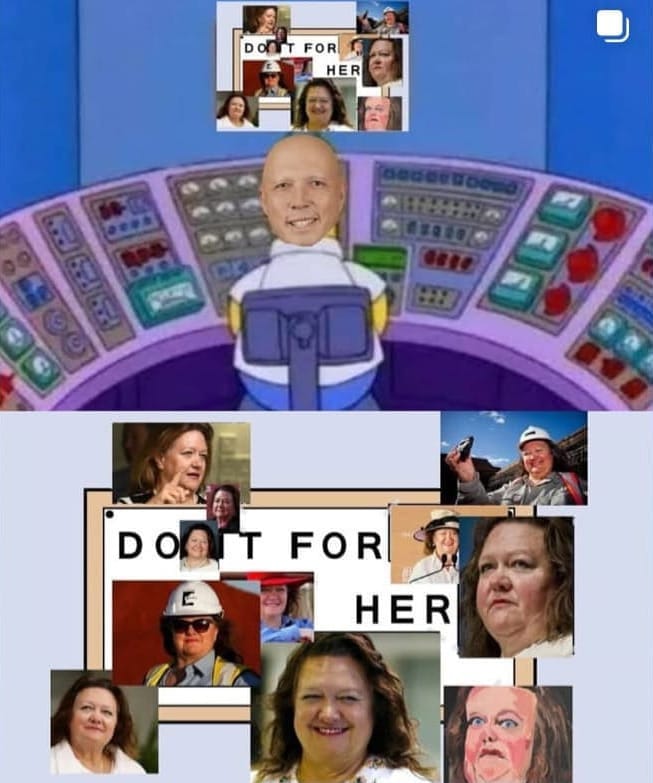My manager said something to me yesterday that really got me thinking.
Something really not nice — that nevertheless entirely confirmed that my spontaneous decision to quit a couple of days ago was the correct one.
For context: I’ve worked casually for six weeks or so in a retail environment that hammers home the importance of the superior customer experience, that which sets us apart from the neighbouring conglomerates. It’s the kind of place where you remember people’s names and regular orders; where, if a mother is struggling to juggle her groceries while wrangling three kids, we would be encouraged to help her carry them out to her car. (At least, so the training module told me.)
Moreover, it’s a low-waste/bulk foods store that, in reducing plastic packaging and encouraging re-use instead of throwing away, you would think a more mindful, compassionate, and principled attitude would go hand-in-hand.
Apparently not so.
A middle-aged woman came to the counter with some delectable items (honey, cinnamon almonds) she planned to arrange into a gift basket for her boyfriend for Christmas. Her demeanour seemed gentle, intentional, and wise, and she chatted happily away as I tried to remember item codes and my manager wrapped hamper boxes a metre or so away.
I can’t remember exactly how it came up (I tend to lock in with other deep thinkers so swiftly and naturally that the small talk leading into it feels forgettable), but within a few minutes, she was sharing how she had recently become so physically debilitated she was unable to continue working in her field as a trauma counsellor (amidst all the capital-T Traumas you can imagine, which she listed out).
On top of this, she had been told she would never walk again — and yet through the power of her mind and rejecting the limitations imposed upon her, she was getting around on her own two feet with the simple sometimes-aid of a walking stick, which lay unused in her trolley.
I don’t know about you, but:
If someone is talking trauma and healing in front of me, I would think the superior customer experience model would involve paying close attention.
As a bare-minimum-human-thing, I believe it only right to listen as deeply as I can and learn something, despite the nagging voices in my head telling me I haven’t processed the transaction yet, there are still so many tasks to complete, my boss is listening in and might be judging me.
There are some topics of conversation worth pausing for; people and their experiences that dignify honouring beyond your typical customer service quipping designed to get the transactions done and money in our hands ASAP.
The kind of transactional exchange I, until yesterday, believed this sort of “conscious” business would be naturally more immune against.
When this woman cheerfully bid us “Merry Christmas” and pushed her trolley out of earshot, my manager rounded on me with a coldness in her eyes and a lick of flame on her tongue.
She said, “I’m not paying you to chat to customers. Everyone’s got a story to tell, and if they start telling it, move on and keep working.”
Deny humanity. Ignore pain. Keep it moving. Keep money rolling in. Keep transacting, instead of truly connecting.
I was horrified. I doubt my face (which was once described to me as being “the opposite of a poker face”) concealed how I felt, nor the tidal wave of retorts I considered stammering out in response if I thought for even a second they would land.
The conversation with this woman, while intense, could not have lasted more than five minutes, ten if I’m being generous. Ten minutes to put transactions aside to grant someone their humanity.
Perhaps this is an unpopular opinion in this commodified day and age; but ten minutes to really be present with one another hardly seems like enough to tank businesses and crumble our capitalist towers.
(And if it is...well, I'm really quite okay with that.)
This exchange told me everything about why I handed in my notice two days ago, after working here just shy of two months; after delivering it with both heart-pounding trepidation and elated clarity, before, naturally, questioning my decision as scarcity thoughts and fears bubbled to the surface of my mind.
You’re quitting again. We need the money. There won’t be other opportunities. You’ll have to start carving out of savings again. We won’t have enough. We’ll lose everything. We’ll die.
Yet in this moment – with my manager flashing me looks like I had just kicked her mother in the shins or something – even my scarcity fears were like, “Fuck this. We can find better.”
Since the onset of the pandemic and resulting lockdowns, I’ve committed to the process of (what I didn’t realise would be) the most harrowing inner work. It’s been a long cliff walk in a monsoonal storm to reach this conclusion — though I have, finally, stumbled on a checkpoint thats permit me to firmly, without (much) shame, withdraw my support and sustained interaction with people and institutions that don’t think, or contribute, towards the kind of world I want to live in.
(Not quite the same thing as withdrawing from those with differing beliefs and opinions from mine – like, say, religious or political affiliations. I’m not planning on hunkering down into any ideological bunkers, as Brené Brown warns against.)
Saying no – in any case, big or small – goes against every ingrained belief and survival system I have built. For example, I recently made a big decision to change my mind about attending an overseas wedding of a close friend of mine, and honour my current energetic and financial capacities; to which a different friend looked at me wide-eyed and said, “Wow. I don’t think I’ve ever seen you…say no. To anything.”
My heart pounded out of my chest when I handed in my notice — not because I’ve never quit anything before, but because I did so in a way that deeply acknowledged the truth of my experience and stood two feet in line with my integrity, rather than my fears.
I considered copping out with the excuse that my boyfriend and I will be moving away from Brisbane early next year. That would have enabled me to escape with minimal possible repercussions and it's-nothing-personal sentiments.
Yet when an opportune moment to quit arrived in a rare moment of resolute clarity, something told me to – as the same friend mentioned above once said to me – “tell my most truth.”
And my most truth is:
I want to live in a world where people can take ten minutes during busy, inconvenient times to unload, connect, and be real with each other. Where sharing fears and experiences as part of daily small talk is normalised and encouraged.
I want to live in a world where the human experience takes the podium at every possible moment, instead of selling those spots to the highest bidders. (Read: The people who are paying us, and often unfairly, at that.)
I want to live in a world where someone can bring up the hard stuff and their recipient, whom they’ve trusted with that information in that moment, will look them squarely in the eye and say, “Holy shit, that must be hard. Tell me more,” instead of awkwardly sweeping it under the rug and keeping it moving.
I don’t want to live in a world where we’re practically taxed for taking human pauses against the grain of the relentless grind that attempts to crush us all into malleable pulp (and/or rebuild us into thoughtless drones).
I don’t want to live in a world where profit — and its close cousin, convenience — dictates our pulse and drives us all to sickness with its insatiable quest for moremoremorefasterfasterfaster, under threat of losing our security. (E.g., I visited an acupuncturist the other day for the first time in a year or so, and she said, “You’re too young and fit to have a pulse this rapid.”)
I don’t want to live in a world where the interactions we share are nothing more than incorporeal performances, stacking bricks into walls that fortify our rigid fortresses of systematic roles and relations — and ultimately stop the outside light from penetrating us.
(Of course, these weren’t the exact words I used when handing in my notice — no busy manager needs or wants to read a manifesto. However, they were words to the effect of, “This is where I’m at, this is where I won’t settle, and this is what I want. And it’s not here. Thank you, and goodbye.”)
I feel proud (and a little scared) of the way I handled myself. Of taking action pretty soon after Knowing settled in, instead of holding on for too long and rationalising away my intuition, as I have done many times in the past. And, of making an infinitesimally small declaration on behalf of humanity that says:
I, on behalf of we, will not fuck with subhuman treatment anymore, in any context. Go back to the drawing board and don’t come back until you’ve got something kinder, more inclusive, and more beautiful to show us.
I’m curious to see what opportunities and connections come knocking as a result of clearing space of unwanted junk and purging unsolicited societal conditioning. Of communicating my — and my deep thinking people’s — worth to the Universe; scarcity fears be damned.
If my ten-minute conversations about real shit somehow contribute to the downfall of our capitalist status quo, then so be it. It clearly wasn’t built to last.
I would love to hear about your quiet acts of revolution against the relentless grind trying to turn us all into malleable pulp and/or thoughtless drones. Comments, questions, deep thoughts — all the real shit — always welcome and cherished.




